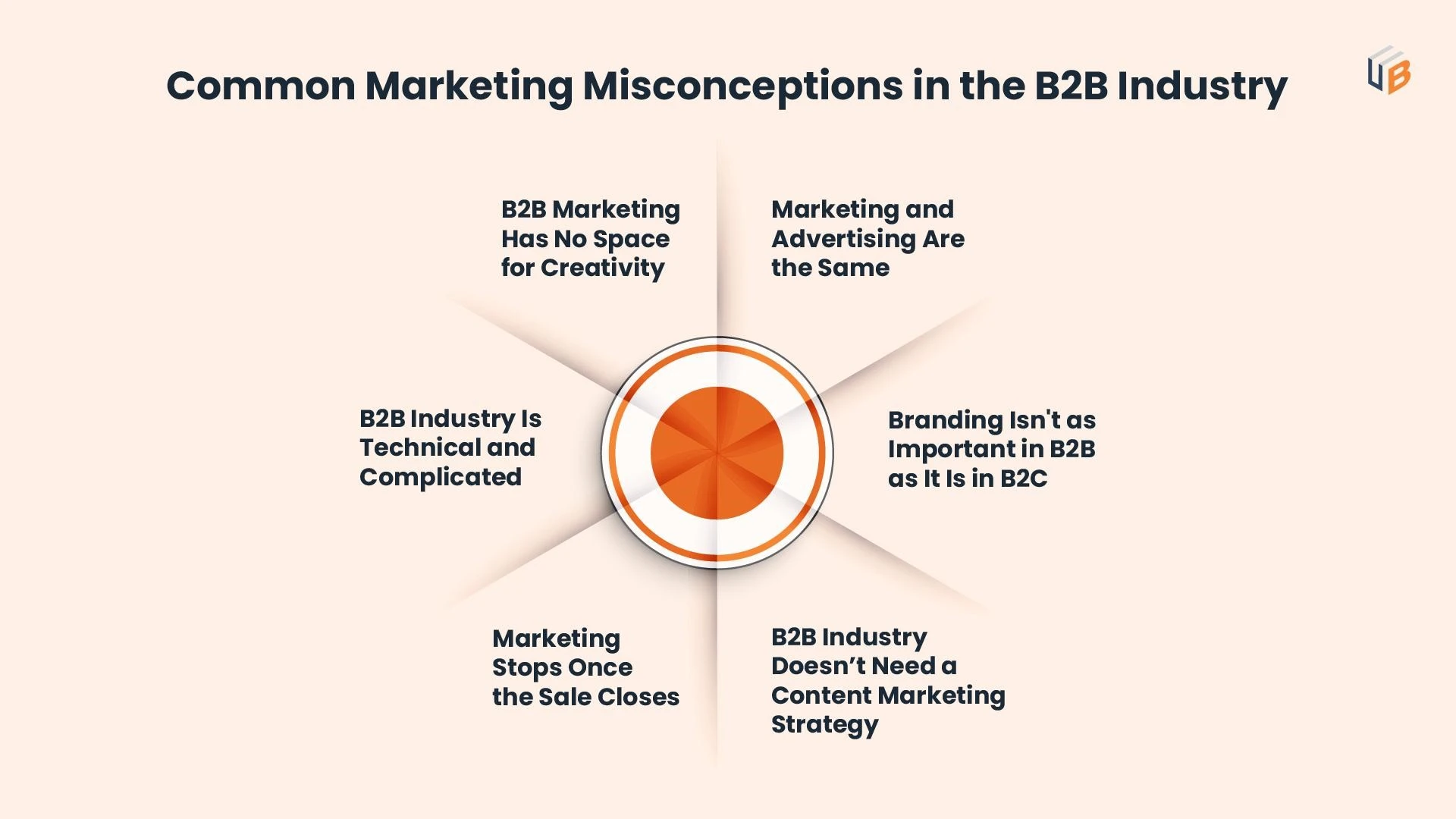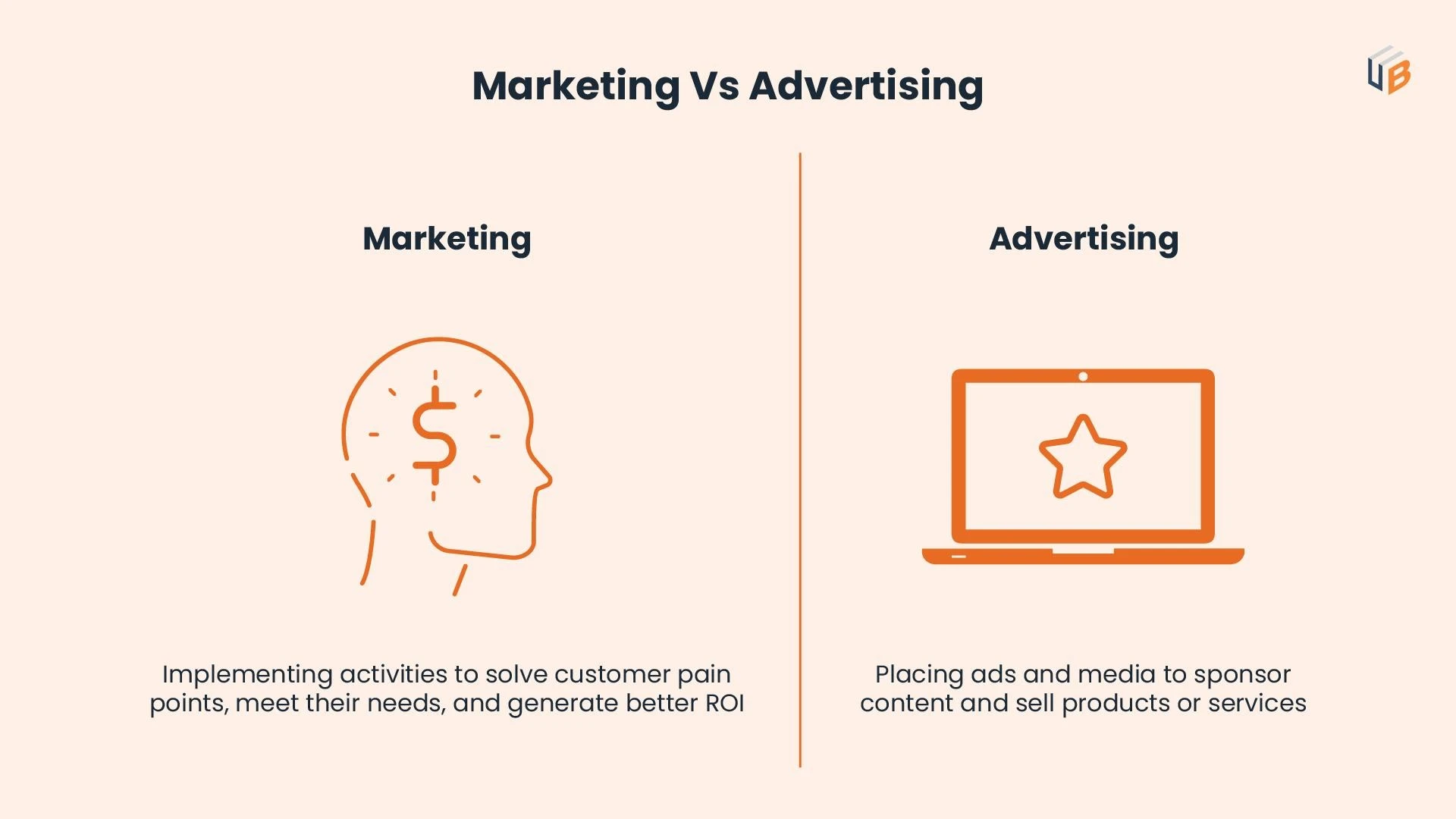
For years, businesses have been offering products and services to businesses based on their resources and expertise. However, marketing in the B2B industry has advanced to an entirely different level based on technology, modernization, and marketing misconceptions are revolving around it.
Online targeting, display advertising, and marketing automation are now used globally. With advancements, common misconceptions about marketing have grown. Organizations and marketers are working relentlessly on these marketing misconceptions and it is an endless spiral.
Some organizations have the marketing myth that content marketing cannot be performed in a B2B enterprise. For 71% of marketers, content marketing has become more important to their organizations in just the last year. But only about 29% say their organizations are getting very successful outcomes with their current content marketing efforts.
So let’s debunk some of the B2B marketing misconceptions for effective results in 2024.
Common Marketing Misconceptions in the B2B Industry
Marketing myths are very common and often times misleading. To avoid the chaos and incorrect decision-making, we are busting these 6 common misconceptions in B2B marketing:

Myth 1: The B2B Industry Is Technical and Complicated
A misconception about marketing is that the B2B industry is complicated and not emotionally driven. It is also true that most products and services are technical in nature. For example, the manufacturing, SaaS, digital industry, or life science. Even marketers get frightened by the jargon and technical concepts. However, it is crucial to understand that all industries are human-to-human based.
Prospective clients definitely ask for the technical information to make an informed decision. However, the content provided by marketers needs to cater to value and should be easy to understand and grasp. B2B buyers need simple and approachable content just like B2C buyers.
Marketers should build a relationship with the targets and nurture them just like any other industry. B2B clients work on emotional triggers and storytelling so considering these points and inculcating them in B2B marketing is lucrative.
Myth 2: B2B Marketing Has No Space for Creativity
It is also a marketing misconception that only consumer brands can have fun and memorable campaigns and B2B is bland and monotonous. It doesn’t matter what industry it is, marketing should resonate with your target audience and prospects. This is only possible when you apply creativity in your planning and implementation stages.
The thought process and the strategy should be packed with creativity. So when the resources like videos, visuals, and experience are seen by your target audience, they remember it for a long time.
While reaching the prospects, use content that is relatable, informational, and has high recalling value. B2B marketing targets multiple decision-makers at different stages in the buying cycle with various information requirements. More organizations are moving towards delivering content that is simple yet creative giving it a human touch and value.
Myth 3: Marketing and Advertising Are the Same
Marketing and advertising in the most general parlance are not common or synonymous. So it is time we burst the marketing misconception that marketing and advertising are the same.
By its definition, marketing is the process of identifying client needs and finding how best to meet those needs. On the contrary, advertising is the approach of promoting an enterprise and its products or services through paid channels. In simple terms, advertising is an element of marketing.

Marketing is a strategic entrepreneurial approach and advertising is just one of the plans that can move a marketing strategy forward. Every ad is a part of marketing strategy but not all marketing tactics include ads in them. So by definition, understanding and fundamentals ads and marketing are not the same and have different aspects to it. Marketers need to be careful while curating strategies and segmenting them.
Myth 4: Branding Isn’t as Vital in B2B as It Is in B2C
In today’s B2B industry, branding is more important than in B2C. There are multiple reasons backing it.
- The Buyer’s journey in the B2B industry has drastically changed in the last ten years
- This leads to the buying process becoming long and tedious
- Also, there are multiple decision-makers involved in the process
- Most of the buying process is complete before a prospective client even engages a salesperson
Moreover, branding can create more awareness for the B2B industry and marketing than in B2C marketing. Most B2B marketers get attracted to investing only in lower-funnel lead-gen marketing programs, such as SEO, paid search, and social media ads. These channels reach only a small section of prospective clients who are ready to engage today. On the contrary, investments in programmatic advertising and targeted display advertising can offer a far better reach needed to build awareness among the broader audience of B2B marketers.
Myth 5: The B2B Industry Doesn’t Need a Content Marketing Strategy
All industries including B2B require a content marketing strategy. Without a strategy, content is just stuff and it will not create any awareness or increase traffic. It will never bring results that will be actually successful. Only one-third of the marketers have a proper content strategy which makes their jobs a lot easier and achievable.
When you create a detailed and comprehensive content marketing strategy, you get a roadmap for marketing success. This strategy will make sure your content aligns with your enterprise goals. There is no one-size-fits-all in content marketing so you get the room to identify what is working and what needs refinement. It will also ensure you deliver consistent content which adds value to your brand and which eventually sells.
Myth 6: B2B Marketing Stops Once the Sale Closes
A good practice in B2B marketing and contrary to the marketing misconception is that marketing is continuous even after the target has become a customer and has completed a sale. This is because buyers want to have a long-term relationship than in the lifecycle of a product or service they purchased. Most buyers prefer to buy products or services from enterprises they have a great relationship with.
As we mentioned above, B2B sales cycles are complex as there are many decision-makers involved and one decision can impact the entire organization. Marketers keep the marketing going in order to retain existing clients for extended periods. These clients also become your brand advocates bringing you more and improved clients while preventing B2B churn. Also, marketers don’t make a long-term relationship with only the key decision-makers but with everyone involved in the purchase long after the sales are completed.
Ending the B2B Marketing Misconception
There are many marketing misconceptions and myths rotating around B2B marketing and industry. It is time that marketers get ahead of these misconceptions which are stunting their growth and bringing less optimum results. Bursting these myths also becomes crucial as it will hinder the potential of the marketers. So make sure you have a comprehensive content marketing strategy and have continuous marketing done even after the sales are close to get ahead of the competition and create better brand awareness.
FAQs
1. What is the history of B2B Marketing?
The earliest B2B marketing started in the early 1800s with industrial magazines that talked about farming, mining, and manufacturing. Up until the 1990s, B2B marketing was called industrial marketing.
2. List out a few factors affecting B2B Marketing.
There are multiple factors that affect B2B marketing. These include business strategy, target audience and ICP, competitors, pricing, and much more.
3. Different types of B2B markets.
There are 4 types of B2B markets. They are categorized into producers, resellers, governments, and institutions.
Our blog
Latest blog posts
Tool and strategies modern teams need to help their companies grow.

This comprehensive guide covers everything about service marketing—its unique chara...

Believe it or not, the concept of content sharing existed long before the Internet. I...

Sales analysis is essential to avoid inaccurate forecasts and identify improvement op...




